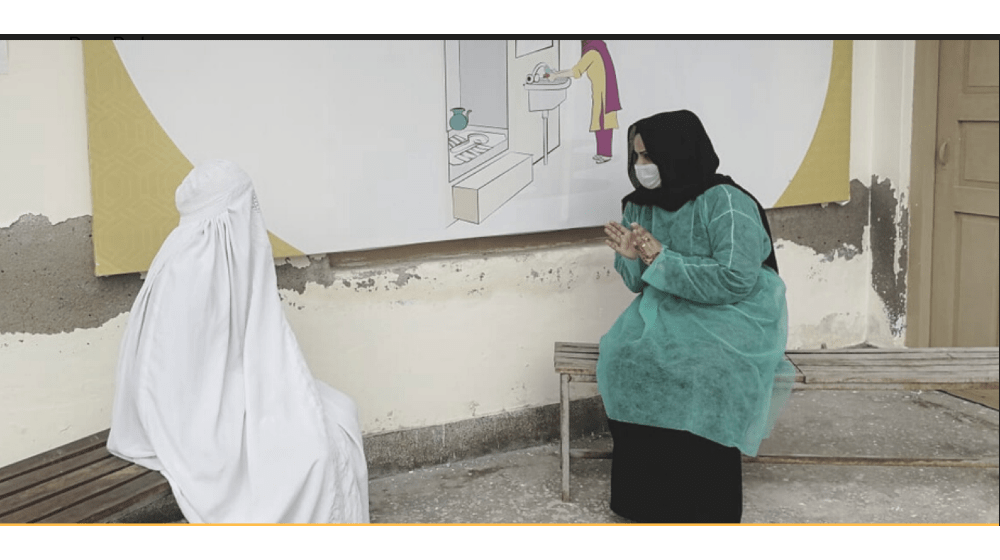In the heart of Loralai, Balochistan, an oasis of support and care exists for women like Sharifa, a 26-year-old mother of two, whose life was marred by violence and despair after she fled from her home country Afghanistan which is marred by conflict.
The People's Primary Healthcare Initiative (PPHI), with UNFPA’s support and funding from the Bureau of Population, Refugees, and Migration (PRM) is running the Women-Friendly Health Space (WFHS) in Nasarabad, Loralai, as a sanctuary where women can seek solace, guidance, and medical assistance tailored to their specific needs related to gender-based violence (GBV), mental health, and sexual and reproductive health (SRH) issues.
Sharifa’s story is a testament to the vital role that spaces like WFHS play in the lives of vulnerable women. “Married at a young age, I endured unimaginable suffering within the confines of my home especially after we fled to Pakistan,” said Sharifa. She narrated that she faced various forms of violence from her husband, including mental, physical, and verbal abuse. What made her situation even more unbearable was her husband's involvement in multiple relationships, both with girls and boys.
Overwhelmed by her circumstances, Sharifa felt hopeless and attempted to end her life twice, believing her existence had lost all purpose and meaning. Depression and stress had taken a toll on her physical and mental health, pushing her to the brink of despair. However, following a severe altercation, Sharifa found the courage to take a life-changing step – she filed for divorce.
After the divorce, Sharifa sought refuge at her father's home, hoping for safety and security. Yet, her respite was short-lived. Her father-in-law intervened, engaging religious scholars to mediate and resolve the issue. Tragically, these scholars deemed the divorce invalid, citing baseless claims of "spirit possessions," leaving Sharifa trapped in a cycle of abuse and uncertainty.
In her darkest hour, Sharifa found her way to the WFHS, run by UNFPA’s partner PPHI. Here, she discovered more than just medical assistance; she found a safe space where her voice was heard and her experiences validated. The compassionate professionals at WFHS provided Sharifa with the support she needed, addressing not only her physical injuries but also her mental and emotional scars. Through counseling and therapy, Sharifa began her journey towards healing and recovery.
UNFPA’s involvement in spaces like WFHS extends far beyond medical treatment. By addressing the multifaceted challenges faced by women like Sharifa, UNFPA empowers them to reclaim their lives. Through a combination of therapeutic interventions, legal support, and community awareness programs, UNFPA ensures that women refugees and from the host communities are not only treated but also protected from further harm.
Sharifa’s story is a poignant reminder of the transformative impact of initiatives supported by the Government of the United States through the PRM. By providing a lifeline to women in distress, UNFPA contributes not just to their physical recovery but also to the restoration of their dignity and self-worth. The women-friendly health spaces become not only places of healing but also symbols of hope, demonstrating that even in the face of the most challenging circumstances, resilience and support can pave the way for a brighter future.


